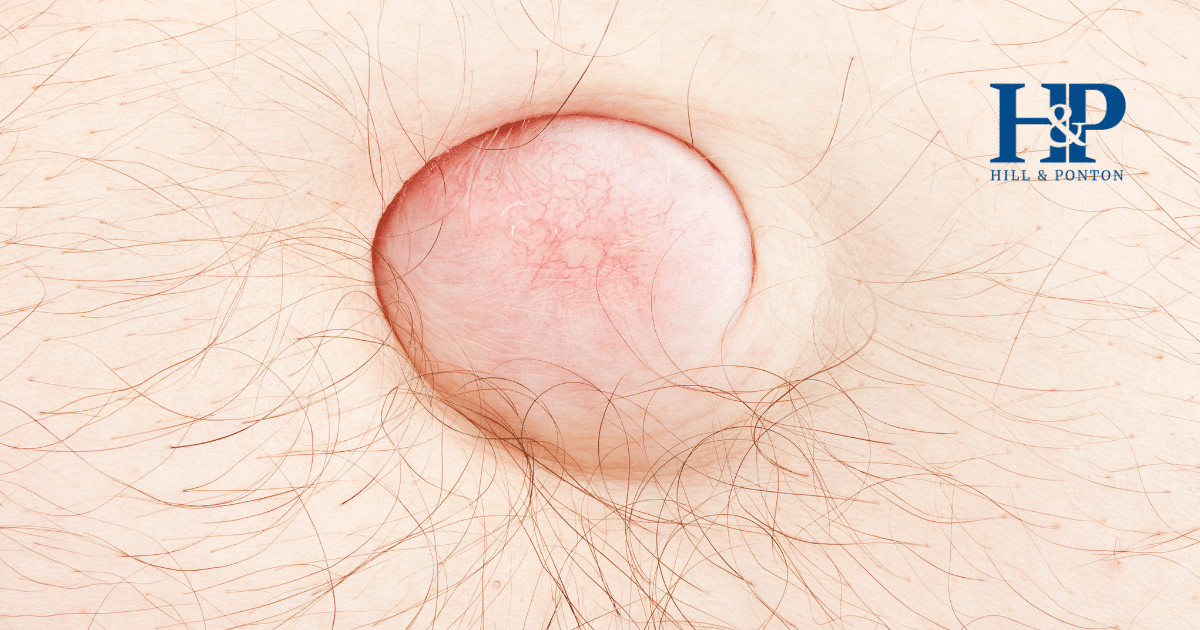At Hill & Ponton, we recognize the sacrifices our veterans have made and the unique challenges they face upon returning home.
One such challenge is navigating the complexities of VA claims, especially when new options arise.
Recently, a new process known as the Elective Option (EO) under the Camp Lejeune Justice Act Claims has been introduced.
It promises some significant benefits but isn’t the right choice for everyone.
This article aims to help our veteran community understand this new option, its advantages, and whom it best serves.
Understanding the Elective Option (EO)
The Elective Option (EO) for Camp Lejeune Justice Act claims is a specific route that eligible veterans can choose when seeking compensation for illnesses linked to water contamination at Camp Lejeune.
Before diving deeper into the nuances of choosing the EO over a lawsuit, it’s crucial to have a clear understanding of what this option entails.
What is the Elective Option (EO)?
The EO is essentially an administrative process established to streamline compensation for veterans who were exposed to contaminated water at Camp Lejeune and subsequently developed specific illnesses.
It operates outside the traditional lawsuit framework, offering a more direct route to compensation for qualifying veterans.
Key Features of the EO:
- Simplified Proof Requirements: Unlike traditional legal routes, the EO doesn’t necessitate the claimant to provide exhaustive evidence of exposure to the contaminated water. If a veteran lived or worked at Camp Lejeune during the specified period, they would be eligible, provided they meet the other EO criteria.
- Base-Wide Approach: The EO doesn’t require claimants to prove they lived or worked in specific contaminated areas of Camp Lejeune. A more generalized base-wide approach is applied, simplifying the eligibility criteria.
- Set List of Qualifying Diseases: The EO has specified a list of diseases that qualify for compensation. If a veteran has been diagnosed with any of these diseases and meets the exposure criteria, they are eligible for compensation under the EO.
- Guaranteed Payment: Once the necessary documentation is provided and all criteria are met, veterans can expect a guaranteed payout, usually within 60 days.
In essence, the EO offers a faster, more streamlined process for veterans seeking compensation, reducing the complexity and unpredictability associated with traditional lawsuits.
However, like all options, it has its pros and cons, which we’ll delve into in the next section.
Why Choose EO Over a Lawsuit?
Choosing between the Elective Option (EO) and filing a lawsuit is a significant decision for many veterans.
Each route has its advantages and challenges.
Here’s a comparison to help you understand why some may opt for the EO instead of taking the legal route:
Guaranteed Compensation
- EO: One of the standout benefits of the EO is the assurance of payment. Once you meet the requirements and complete the necessary documentation, the settlement is guaranteed.
- Lawsuit: Going the legal route, such as filing a lawsuit in Federal court, doesn’t promise a win or any compensation. You’ll need to provide proof that the contaminated water was the direct cause of your illness, which can be a complex process involving numerous factors.
Time and Complexity
- EO: The EO process is designed to be more straightforward. If everything is in order, veterans can expect their compensation within 60 days or less. There’s no need to establish where exactly you were in Camp Lejeune; being there during the eligible period suffices.
- Lawsuit: Lawsuits are generally time-consuming. They can involve months of discovery, motions, and potentially a trial. Establishing exposure to the contaminated water systems and proving it caused your illness might require expert testimonies and ample evidence.
Financial Implications
- EO: There’s no need to worry about disability awards, payments, or benefits received through the Department of Veterans Affairs being offset when accepting an EO offer.
- Lawsuit: If you win compensation through a lawsuit, the recovery amount might be reduced based on disability awards or benefits related to your exposure at Camp Lejeune.
Scope of Illnesses Covered
- EO: The EO has a predefined list of diseases eligible for compensation. If your condition is on this list, the process is straightforward.
- Lawsuit: While the EO focuses on certain illnesses, filing a lawsuit might allow you to argue for compensation for other illnesses if you can establish a strong case linking the illness to the contaminated water.
Emotional and Mental Toll
- EO: Choosing the EO typically means less stress and emotional turmoil as the process is more predictable and less confrontational.
- Lawsuit: Going through a lawsuit can be emotionally draining. It’s a confrontational process that may require recounting painful experiences.
In conclusion, while the EO offers a quicker and more straightforward option, it’s essential to weigh the pros and cons based on your unique circumstances, the severity of your illness, and what you hope to achieve.
Consulting with experts, like the team at Hill & Ponton, can provide clarity and guide you towards the best decision for your situation.
Who Benefits the Most from EO?
When considering the Elective Option (EO) for Camp Lejeune Justice Act claims, it’s essential to identify if this route suits your unique circumstances.
While some veterans stand to gain a lot from the EO, others might find it less favorable. Here’s a breakdown of those who could benefit most from the EO:
Veterans with Tier 1 Diseases
For those diagnosed with Tier 1 diseases, the EO can be especially beneficial as it offers quicker compensation without the hassles and uncertainties of prolonged legal battles.
With the EO, once you’ve met the set criteria and filed the necessary documents, you’re guaranteed a payout.
Veterans with Multiple Disabilities on the EO List
If you suffer from more than one disability that qualifies under the EO, the process simplifies your claim by focusing on the condition that provides the highest compensation.
There’s no need to present multiple claims or navigate the complexities of multiple conditions. The EO ensures you’re compensated adequately for your highest-ranking ailment.
Veterans with Diseases in Remission or Minimal Impact
For veterans whose qualifying illnesses aren’t causing severe current health complications or are in remission, the EO provides a financial benefit without delving deep into the nuances of the disease’s current state.
Unlike a lawsuit where the current status, prognosis, and impact of the disease might require extensive documentation, the EO process is relatively straightforward for these veterans.
Veterans Seeking a Stress-Free Resolution
The EO offers a resolution without the need for long court battles, saving veterans the stress and emotional strain that can accompany lawsuits.
The EO provides a clear framework, allowing veterans to know what to expect, making the process less anxiety-inducing.
However, it’s essential to remember that the EO might not be the best choice for everyone.
For instance, veterans with severe conditions, like Parkinson’s, that could potentially worsen over time might find the EO less favorable.
The EO focuses mainly on causation and not on the damages or the progression of the disease.
Do you think you qualify for this Elective Option and want more information? Contact our team today!

Who Might Want to Think Twice?
While the Elective Option (EO) provides a streamlined process for many veterans, it’s not the best fit for everyone.
Some conditions and circumstances might make the EO less beneficial for certain individuals.
Here’s a closer look at situations where veterans might need to reconsider choosing the EO.
Severity and Progression of the Illness
- Parkinson’s Disease: This condition stands out as one where the EO might not offer fair compensation. Parkinson’s is a progressive disease, and its severity can intensify over time. Veterans with Parkinson’s might find that the EO does not adequately address the potential future complications or the long-term care they might require.
- Terminal or Chronic Illnesses: While the EO doesn’t differentiate between the severities of qualifying diseases, some illnesses are naturally more debilitating than others. For veterans with conditions that are especially severe or that significantly affect their quality of life, the EO’s one-size-fits-all approach might not provide the most suitable compensation.
Multiple Qualifying Illnesses
Veterans who have been diagnosed with multiple diseases from the EO’s list might not maximize their potential compensation under this option.
The EO offers compensation on a “per-claimant” basis, not “per-injury”.
Thus, even if a veteran has multiple qualifying conditions, they’ll only be compensated for one, typically the one offering the highest compensation.
Consideration of Damages
The EO primarily focuses on causation rather than the damages or the severity of the impact of an illness on a claimant’s life.
For veterans who have faced significant hardships, lost wages, or drastic lifestyle changes due to their illness, the EO might not fully reflect the true extent of their suffering and damages.
Future Medical Needs
For illnesses that might require ongoing or future medical interventions, treatments, or surgeries, the fixed compensation offered by the EO might not account for these potential expenses.
Veterans should weigh the current compensation against possible future medical costs.
The Bottom Line
Navigating the complexities of VA claims and compensation options can be overwhelming, especially when faced with serious health concerns.
The introduction of the Elective Option (EO) for Camp Lejeune Justice Act Claims provides a potentially faster route to compensation for many veterans, but it’s crucial to approach it with a full understanding of its benefits and limitations.
For some, the EO offers a simplified, efficient way to receive compensation without the long wait or complexities of a traditional lawsuit.
For others, particularly those with severe conditions or multiple qualifying illnesses, a more traditional route may provide better long-term benefits and more adequate compensation for their unique challenges.
At Hill & Ponton, our primary concern is ensuring that veterans are well-informed and make decisions that are truly in their best interest.
We encourage all veterans to weigh the pros and cons of the EO, consult with legal professionals, and consider their individual circumstances before making a choice.
Thinking About EO? Here’s Our Advice:
- Consult with an expert: Always discuss your situation with a VA disability law expert. They can provide guidance tailored to your circumstances.
- Consider your future: Think about how your condition might change in the coming years. Will the EO offer enough support if your illness worsens?
- Stay informed: Keep an eye on updates related to the Camp Lejeune Justice Act. The more you know, the better decisions you can make.
Have Questions About Understanding How the Claims Process Works?
Hill & Ponton are here to support you with getting started with your claim.
If you are intending to appeal a denied Camp Lejeune VA claim, you can contact us for an evaluation and we can help you with this process.
However, if you are considering filing an initial claim, or even if you are interested in learning about the appeals process, we offer a free ebook to get you started on the right foot!
The Road to VA Compensation Benefits will help break down the claims process from start to finish. Click the link below to learn more.





